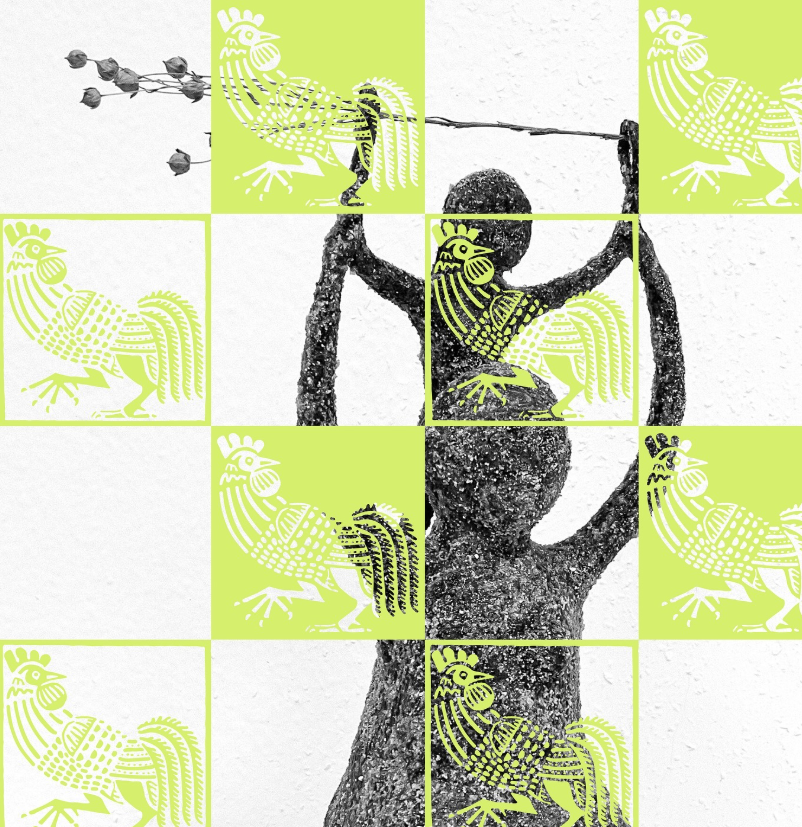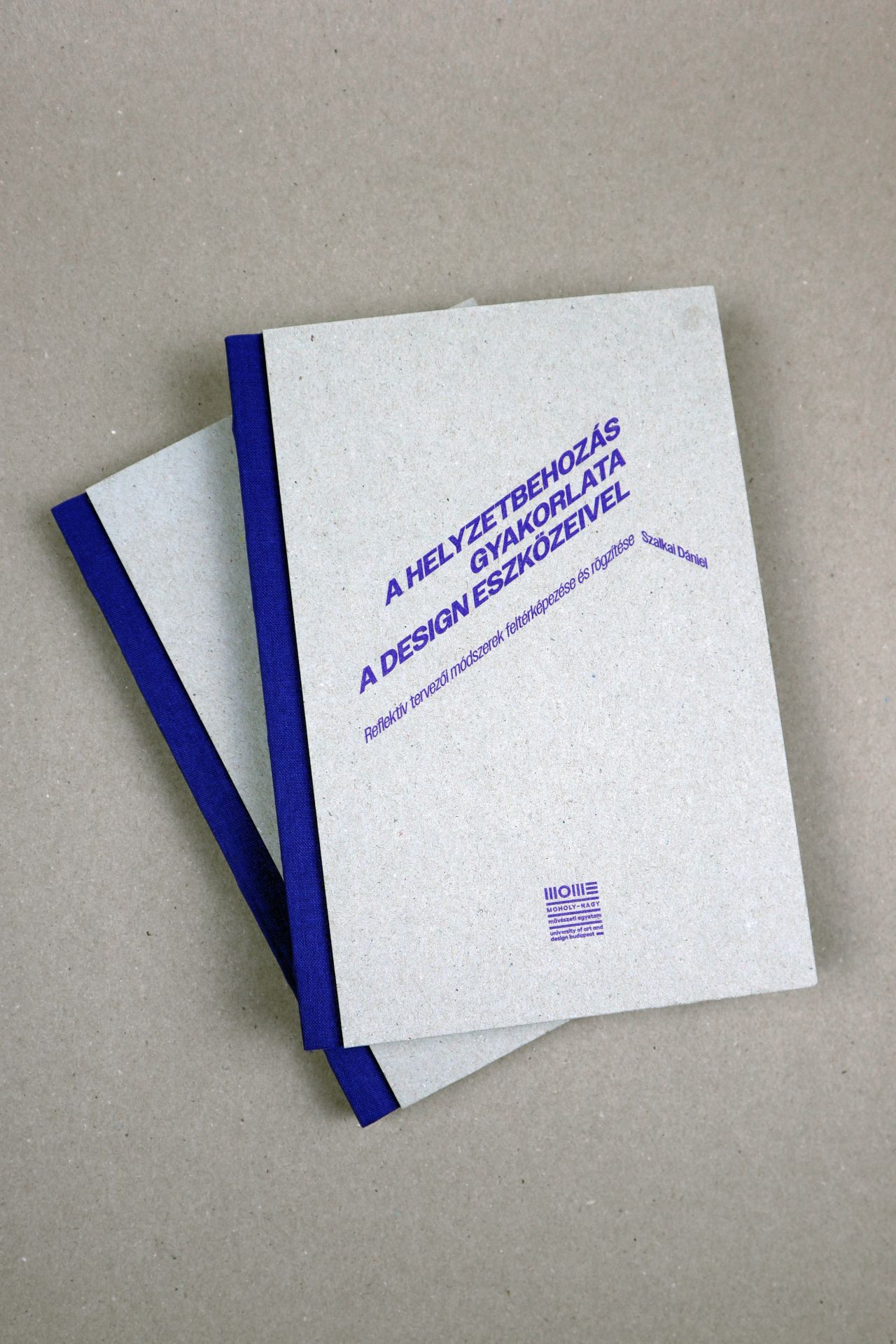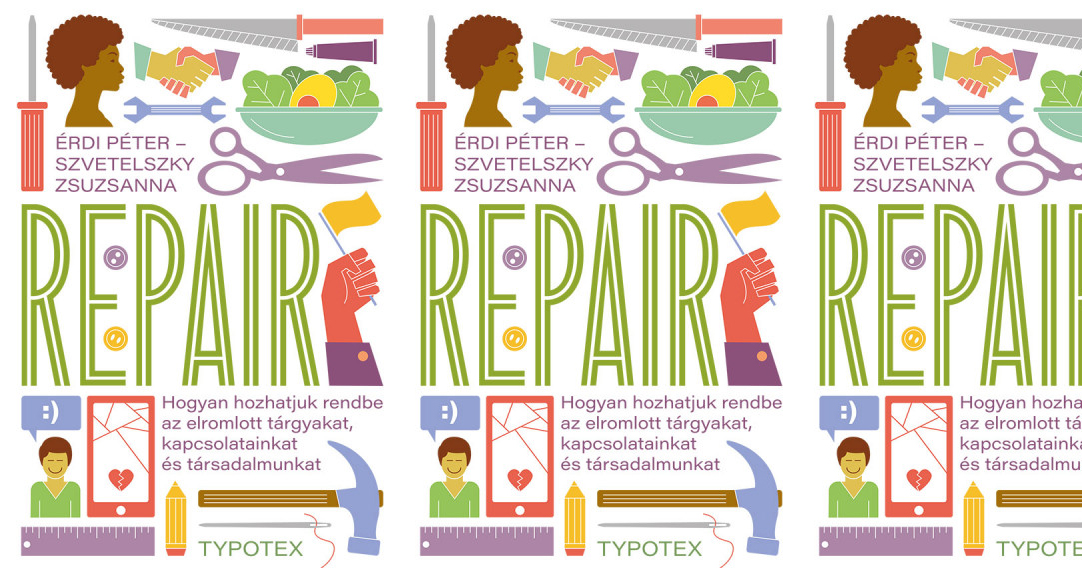
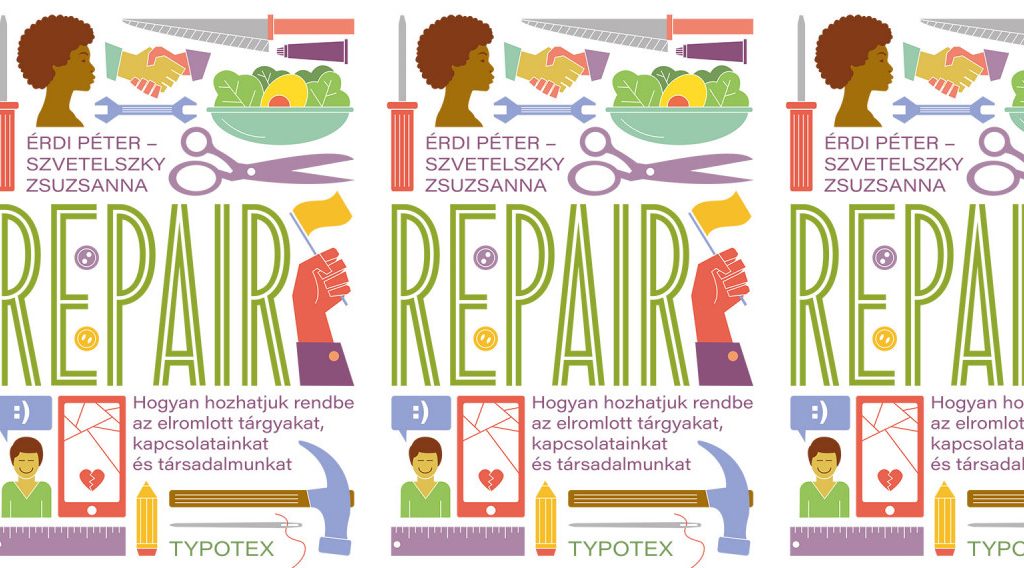
“We need to retain our ability to act” – Interview with Péter Érdi
Battling the effects of global crises that creep into our everyday lives, we may easily find ourselves on a rollercoaster between mounting panic and the impassiveness brought on by a sense of futility. In the face of steadily accumulating challenges, we are justified in wondering how to proceed. Researcher and teacher of complex systems Dr. Péter Érdi regards resilient design and operation as a possible way out. His book Repair: When and How to Improve Broken Objects, Ourselves, and Our Society (Springer Publishing, 2021) published last year reflects on the critical situation of our society through various disciplines and offers a foothold by providing a comprehensive analysis of the concept of improvement. In our interview we asked him about the most important tenets of his book.
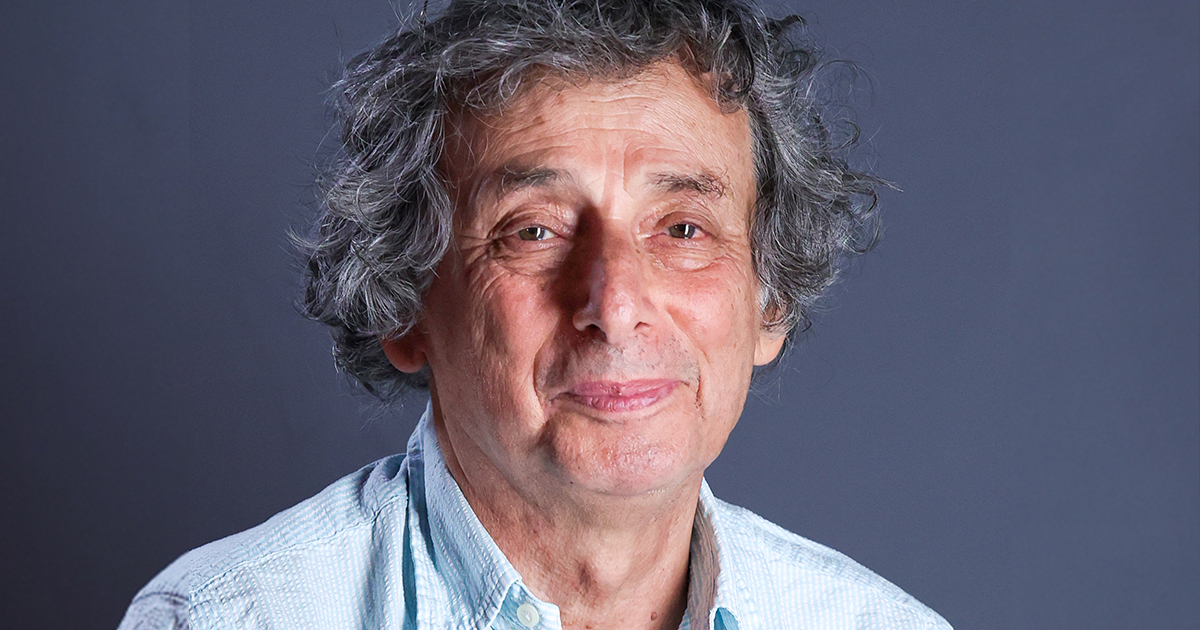
Considering you are a researcher and teacher of complex systems, it comes as no surprise that your book Repair co-authored with social psychologist Zsuzsanna Szvetelszky provides an overview of the critical situation of our throw-away society that is scientific, social, economic, and psychological, all at once. How did you become interested in this subject?
In addition to teaching, I’ve always been interested in writing. I even attended a writing school for a short period, and, when applying, I was asked what my book would be about. Since I spent my life in academia, it would have been the obvious choice to explore my special field of cognitive science in the domain of popular science. I’m interested in phenomena that are relevant today and define how the world works. For this reason, rather than choosing for my previous book Ranking a subject that I had been investigating for decades, I picked one that I found intriguing because of its relevance and current interest. In December 2019, it was at the launch of this book in Budapest that I spotted members of my circle of friends from before. They were sitting at a distance of some ten meters from each other, and could barely bring themselves to greet each other. It got me thinking about how to fix friendships. This is when I knew that my next book would be about repairing relationships, objects, and the world. I mentioned this idea to a dear, though at the time distant friend of mine, Zsuzsa Szvetelszky, who became very excited and sent some suggestions for it. Discussing the subject, we soon concurred that this throw-away approach of our society based on consuming and then replacing and discarding various human and material resources is simply not sustainable. After this, we went on to become co-authors.
The tone of your book is set by a criticism of the idea of golden ages. As Steven Pinker, mentioned by you in a previous talk, writes in his book Enlightenment Now, “With our understanding of the world advanced by science and our circle of sympathy expanded through reason and cosmopolitanism, humanity could make intellectual and moral progress. It need not resign itself to the miseries and irrationalities of the present, nor try to turn back the clock to a lost golden age”. But precisely why is it so important to leave this behind?
I’m taking a moderate and balanced stance in this matter. In other words, I do not believe that this ideal should be entirely cast aside, because it acts as a driver of social progress. My chain of thought was that you can only fix what is broken, and since only something that is working can break, it was necessary to address the subject of golden ages at the beginning of the book. Was there a golden age at all or not, and what exactly did it look like? At this present time of postcolonialism all such claims are being re-evaluated as we speak. I’m teaching at Kalamzoo College in Michigan, where there is a sign in the building saying it was built on land stolen from Native Americans. This being an incredibly difficult subject, it is impossible to exercise the required degree of subtlety and delicacy. One thing is clear though, we can’t return all misappropriated areas; at the same time, an apology is not sufficient to settle old grievances. Most importantly, different social groups have a different idea of which period constituted a golden age, which means no specific era could be regarded as a point of reference for shaping the future.
A throw-away society is built on a linear economy of global capitalism characterised by consuming and then discarding and buying new products over and over again. In contrast, a repair society identified as a counterpoint relies on circular economy to transform and reuse objects. I guess in order to progress from the one to the other, we’d need an entirely new framework that transcends capitalism.
One of the most universal and fundamental experiences shared by my generation is a necessity to fix broken things. In the planned economy of the Socialist regime, the possibility of repairing items was disregarded. Let’s take us, boys, for example, who had one pair of shoes each for playing football. We played every day, which meant that they got worn out pretty fast, and it was standard practice to take them to get mended. When organising the economy, the amount of shoes required by a given number of people and the amount of shoe lasts were set. An attempt was made to determine the volumes to be manufactured in a top-down approach, and were taken very seriously. If a factory failed to deliver their target, the leadership could anticipate major sanctions. In this system, quality obviously took a backseat, and I reckon even advances in technology and information technology could not accomplish reforming a centrally planned economy. In contrast, capitalism is all about freedom of competition, and its neoliberal forms in all probability only serve to increase inequalities. This, however, cannot continue unchecked, and there’s a need for some redistribution mechanism to be set in motion.
The way I see it, complex systems must combine competition and cooperation in equal measure.
Though we live in a state of constant competition, there are still some rules we need to follow, and, in an ideal society, even if the rules are broken, there are controls in place to restore the equilibrium. Nevertheless, we also know from the notorious outbursts of former chairman of the Federal Reserve Alan Greenspan that reliance on self-regulation is not sufficient.
In a repair society, cooperation seems to be gaining in importance. At the same time, giving each other a vote of confidence is always a difficult thing to do.
Cooperation is necessary, no matter how it is achieved. But let me tell you something interesting that I’ve realised recently. In my complex systems class, we play a game, with one student repeating “Yes” while another saying “No” with increasing loudness. They end up yelling at the top of their lungs in an attempt to convince each other, in a complete deadlock. This is my strategy for illustrating a conflict that would blow up in the absence of damping mechanisms. Last year, compelled by the racket we made, a colleague of mine came to check on us to see if we were murdering each other, but made no comment. Then a month ago, there was a shooting at Michigan State University not too far away, and since then, tensions have been running so high at campus that I chose not to introduce the game this year. I was concerned someone might call security if they hear the yelling. Though this environment breeds insecurity, I like to maintain a cautiously optimistic outlook on different situations, which is why we focus on positive opportunities and outcomes in Repair. My third book, currently in progress, is entitled Feedback: How to Save or Destroy the World? I think there is only a thin blue line between these two possibilities, and it will come down to the use of subtle controls whether Gen Z will destroy the world or push it towards prosperity.
Progress and innovation are also intriguing subjects in the context of the book. How is their role to be interpreted in a repair society?
As John von Neumann said, “There is no cure for progress”. Our only safeguard is making informed daily decisions. Let’s take the problem of waste accumulation. As technological processes are irreversible and waste islands have already caused irreparable harm, we should be thinking about what could be salvaged and used. This process might not necessarily be circular because materials are sometimes used for a purpose completely different from their intended use – to use a technical term, it is not a closed-loop system. Innovation can lead to solutions involving the use of waste and in turn, environmental repair. As one of the most impactful economists of our times Tyler Cowen put it, economic growth is a moral imperative, whereas Greta, who by the age of 20 accomplished being universally known by her first name, believes economic development is a fairy tale and quite unnecessary. The concept of sustainable development lies halfway between the two, essentially urging us to minimise the harmful effect of progress on the environment.
And yet illusions about sustainable progress have already been dispelled…
Yes, and the reason could be described in two ways. One is normative, in other words, saying this is how things needed to happen. The other one is descriptive, looking at implementation options. In other words, while understanding the requirements resulting from sustainable development, we also ask ourselves what methods could be used to implement this system. This is where the eight design principles of Elinor Ostrom, the first the first female economist to win the Nobel Prize, tie in. These design principles relate to the management of common – neither privately nor publicly held – resources. According to this theory, grassroots mechanisms represent the solution without any government-level interference. In this regard, Ostrom’s views on development are highly optimistic.
As you write in your book, the smooth working of complex systems – objects, individuals, communities and their sums – is dependent on resilience, the flexible resistance in crisis situations. What is resilient operation and how does it relate to the concept of stability?
Resilience and stability are two separate concepts. Let’s say we have a bowl with a ball in it. We try to push the ball beyond the edge of the bowl without success, and the ball returns to its original steady state. This is stability, which might appear to be positive at first, while making it difficult to adapt to environmental changes over the long-term. If the perturbation (disturbance) is big enough and the ball comes shooting out of bowl, over time it will reach another steady state, this time in a new location. This is resilience and it is the property of being exposed to change while retaining the original function.
The implications are not that we need to behave the same after a change – after all, in the emerging new system, completely different rules might apply – but that we need to retain or ability to act.
In this regard, anti-fragile systems, that can evolve in response to stress are of particular interest.
The closing section of the book includes some thoughts on resilient society, the key to which, according to you, lies in glocalisation.
The first time the line “Think local, act global” came up was in the 60s, prompting global retail chains to tailor their selection to the specific market needs of individual countries. A global government along the lines of this top-down initiative was envisioned, which, in theory would manage the affairs of global economy. Needless to say, it never came to pass. Yet I believe there is a need for stable hierarchical levels, as evolution shows a similar segmentation, from elementary particles, atoms, molecules, cells, organisms and individuals to societies. Glocalisation recognises that we occupy several levels of hierarchy: we follow and make sense of global processes, while being able to act locally on an individual level.
At the same time, in this age of nation states shutting themselves off and showing decreasing openness for global collaboration due to the spread of populism, the question how much cause for optimism we have might arise.
Phenomena such as populism swings back and forth like a pendulum. Currently, we are experiencing a radical swing, but sooner or later the momentum will carry us back. Naturally, existential and catastrophic risks are very much present. This puts me in mind of a line from the book Anti-equilibrium by famous Hungarian economist János Kornai, “One way or another, something is bound to happen.” That’s how I see it, too.
/ //
Dr. Péter Érdi’s lectureWhy is resilience a buzzword? will take place on 21 March 2023 at the Moholy-Nagy University of Art and Design, and is part of the Global Voices programme launched by the Foundation for Moholy-Nagy University of Art and Design.
His latest book Repair will be published in Hungarian by Typotex in 2023.
Portrait: BrainBar
